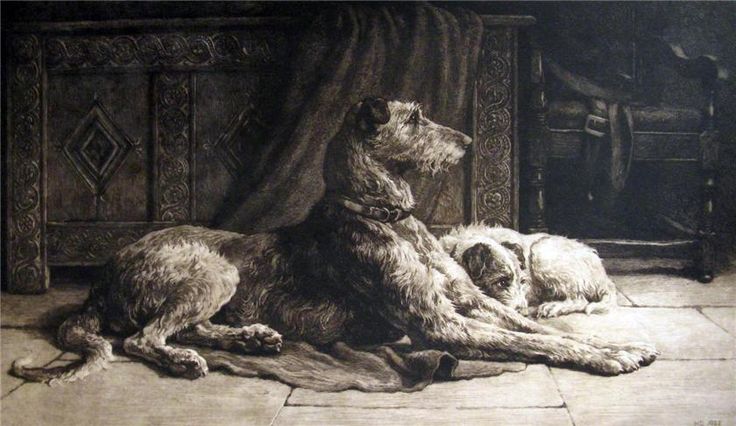Meaning
Irish Heritage
- Connor is a popular given name of Irish origin meaning “lover of hounds” or “wolf-lover.”
- Its roots lie in the Irish Gaelic name Conchobhar, composed of two elements: “con” meaning “hound,” and “chobar” meaning “love.”
- Over time, Conchobhar evolved through various forms across different regions of Ireland and was anglicized as Connor.
The name holds strong historical significance in Irish culture.
Conchobar mac Nessa is a legendary figure in Irish mythology, known as the High King of Ulster in the epic tale “Táin Bó Cúailnge” (The Cattle Raid of Cooley).
His courage, leadership, and tragic fate have cemented his place in Irish folklore and contributed to the enduring appeal of the name Connor.
Throughout history, Connor has been a popular name among both noblemen and commoners in Ireland.
Its association with strength, nobility, and loyalty has made it a beloved choice for parents across generations.
The name’s popularity has extended beyond Irish borders, gaining widespread recognition in English-speaking countries such as the United States and Canada.
Gaelic Roots
The name Connor carries a rich historical weight, its roots firmly planted in Gaelic culture.
Originating from the Irish given name Conchobar, it has evolved through centuries, shaping its meaning and resonating through English language adoption.
Meaning “lover of hounds” or “strong wolf,” Connor’s etymology reveals a connection to primal forces and perhaps even societal structure. The Gaelic word for hound, con, suggests loyalty, strength, and hunting prowess, qualities often associated with leadership and guardianship.
Conchobar was a common name in early Ireland, borne by legendary figures like King Conchobar mac Nessa, who ruled the Ulster cycle of Irish mythology.
His reign is depicted in epic tales filled with battles, love affairs, and heroic deeds, lending an air of nobility and power to the name Connor.
As Gaelic culture spread across Scotland and beyond, so did the name Conchobar.
Its anglicized form, Connor, emerged, finding its way into English-speaking communities. Over time, it lost some of its original complexity, yet retained a core essence of strength and character.
The enduring popularity of Connor speaks to its timeless appeal. It evokes a sense of history, bravery, and nobility, qualities that continue to resonate with individuals across cultures and generations.
More than just a name, Connor carries the weight of ancient legends, cultural traditions, and a connection to the wild spirit of the Gaelic world.
Origin
Early Forms
The name Connor is of Gaelic origin, derived from the Irish surname Ó Conaill, meaning “descendant of Conn.” Conn was a common personal name in ancient Ireland, often associated with kingship and heroism.
The earliest forms of the name are believed to be similar to the Old Irish Conchobar, which evolved into Connchobar or Cóncho Barr. These variations highlight the changing pronunciation and spelling conventions over time.
Throughout history, Conn has been a significant figure in Irish mythology and folklore. Notably, Conn Cétchathach (“hundred battles”) was a legendary High King of Ireland known for his military prowess and wisdom.
The name Connor gained popularity outside of Ireland during the Middle Ages, particularly in Scotland and Wales, where it became a common baptismal name. This spread was likely influenced by cultural exchange and migration patterns between these regions.
As English emerged as a dominant language, Connor underwent various phonetic shifts and spelling variations. The modern form “Connor” is considered the most widely recognized and accepted spelling in English-speaking countries.
Spread Across Cultures
Connor, a popular given name with both Irish and Scottish roots, carries a rich history and meaning that has resonated across cultures for centuries.
Originating from the Gaelic name “Conchobar,” which translates to “lover of hounds” or “brave wolf,” Connor embodies strength, loyalty, and a connection to nature.
The name’s popularity in Ireland can be traced back to early Irish mythology, where Conchobar mac Nessa was a legendary warrior king renowned for his bravery and leadership. This historical figure solidified the name’s association with nobility, power, and courage.
Across the sea in Scotland, Connor emerged as a variant of the Scottish Gaelic name “Coinneach,” which shares the same origin and meaning as its Irish counterpart.
The spread of the name beyond Ireland and Scotland can be attributed to several factors. During the waves of Irish and Scottish migration throughout history, Connor was carried with them to various corners of the globe.
Moreover, the name’s appealing sound and strong meaning have made it a popular choice for parents from diverse backgrounds who seek a name that conveys both strength and charm.
Today, Connor remains a beloved name in many countries, serving as a testament to its enduring popularity and timeless appeal.
History
Historical Figures
Connor is a name with rich historical roots, stemming from Gaelic origins and carrying cultural significance throughout Ireland and beyond.
Meaning and Origin
The name Connor is derived from the Irish “Conchobar” or “Conchobhar,” which itself is thought to be composed of two elements: “con” meaning “hound” and “cobhair” meaning “lover” or “help.” Therefore, Connor can be interpreted as “lover of hounds” or “hound lover.”
Historical Figures:
Throughout Irish history, the name Connor has been borne by several notable figures:
Conchobar mac Nessa
A legendary king of Ulster in ancient Irish mythology. He is a central figure in the epic tale “The Táin Bó Cúailnge,” which narrates a grand cattle raid.
Connor Ó Briain (died 1194)
A powerful king of Thomond, a historical province in Ireland. During his reign, he played a significant role in the conflicts between Irish clans and Norman invaders.
Cultural Significance
The name Connor has strong cultural ties to Ireland and continues to be a popular choice for baby boys there. Its historical associations with strength, leadership, and connection to nature have contributed to its enduring appeal.
Popularity Evolution
Connor is a given name with both Irish and Scottish origins. Its meaning and popularity have evolved over time.
Meaning and Origin:
The name Connor has its roots in the Irish name “Conchobhar,” which is derived from the Gaelic words “con” meaning “hound” or “wolf” and “bachar” meaning “little bear.” This gives the name a strong, even fierce, connotation.
Early History:
- Connor’s origins lie in ancient Ireland, where it was borne by several notable figures, including Irish kings. Conchobhar mac Nessa was a legendary Ulster king, famed for his bravery and cunning.
Evolution of Popularity:
Medieval Period
The name Connor remained relatively common in Ireland throughout the Middle Ages but was less prevalent elsewhere.
19th Century
Irish immigration to North America led to a rise in the popularity of Connor and other traditionally Irish names in countries like the United States and Canada.
20th Century
The name experienced a surge in popularity during the 20th century, particularly in English-speaking countries. Its modern spelling, “Connor,” became more common than the traditional “Conchobhar.”
Contemporary Usage:
Connor is currently one of the most popular baby boy names in many English-speaking countries, reflecting its enduring appeal and connection to strength and tradition.
- 30 Best B2B Leads Database Providers to Try in 2025 - April 26, 2025
- Best Clay Alternatives for 2025 - April 26, 2025
- Best Lusha Alternatives for 2025 - April 26, 2025


